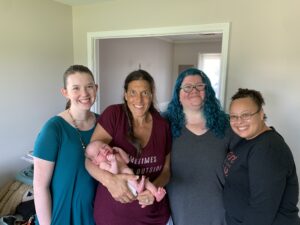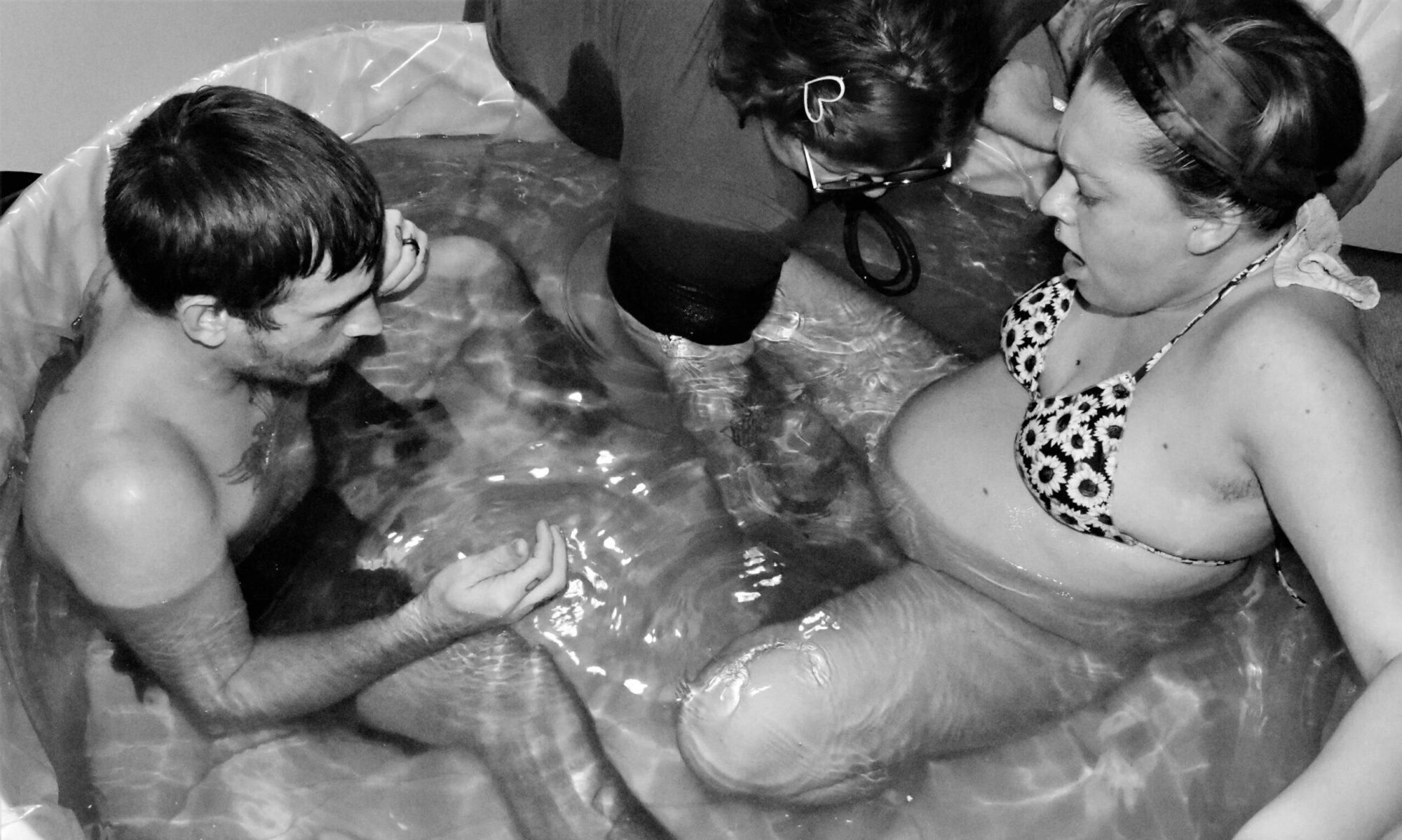
Your family is in charge and all invited guests are there to help you and your family achieve the birth you desire. Homebirth has a different social dynamic than in even the best-intentioned hospital. Moreover, with few exceptions, hospital policies are not intended to meet the needs of the individual woman and her family. Maternity care policies are designed to process as many women and babies as efficiently, cost-effectively, and conveniently for staff as possible.
At your home you are in a familiar, supportive, relaxed environment. It’s a classic tale: the woman has been experiencing strong, regular contractions at home, but they disappear when she gets to the hospital and do not resume until she settles into her new environment. It may take hours before the contractions return to the same intensity. Few stop to think of the reason why, namely that stress and anxiety inhibit labor. Any veterinarian will tell you that laboring animals require a quiet, dimly lit, familiar environment with no strangers and nothing to alarm or disturb them. Humans need the same, and hospitals are generally none of the above.
You are much less likely to be subjected to potentially problematic procedures, drugs and restrictions. Every obstetric intervention carries risk as well as benefit. When interventions are used with women who don’t need them, on a routine or “just in case” basis, or on women whose problem could be resolved by waiting or by simple, risk free measures such as: walking, change of position, talking over worries, or a warm bath, than those women are exposed to the risks without any chance of benefit. The end result is that some women and babies will develop complications, minor or major, that never would have occurred had they not been subjected to the intervention. This truth is why numerous studies examining individual procedures, drugs and restrictions have consistently concluded that outcomes are equally good and often better with restricted use of the intervention. Likewise, numerous studies comparing outcomes between low-risk women receiving standard obstetric management versus similar women receiving the less interventive, midwifery style of care have found that women and their babies receiving the midwifery style of care did equally well or better.
What are some potential drawbacks of homebirth?
· You may face considerable disapproval from family, friends, and medical professionals. This can be very unpleasant and difficult during pregnancy and may actually lead to problems with care should a woman need to move into the hospital during labor or for problems after the birth.
· You take on greater responsibility for making decisions and preparing for the birth. Some couples find this liberating, while others find it a burden
How might having a homebirth affect your birth experience and postpartum recovery?
Emerging from the birth feeling capable and confident puts you in the ideal position to meet the challenges of new motherhood. A homebirth gives you your best chance to do this because:
· You are on your own “turf” where you make the rules.
· You have the opportunity to discover that you can cope with labor using your own resources and strengths.
· You have a caregiver who nurtures, encourages and supports you and your family and who respects your right to participate fully in any decisions made about your care.
· You are least likely to be subjected to procedures such as episiotomy or cesarean section that cause pain and can cause debility.
· Even the need to move into the hospital, however disappointing, can be empowering. You will have the ultimate say-so, and it will be because you agree that appropriate intervention is now right and necessary.
“I’m so very thankful to have these fabulous women in my life and to have had them be part of Vivi’s birth! Brandi helped bring Brynna into the world as well. I know home birth isn’t for everyone, but after trying it both ways, hospital and at home, I wouldn’t have it any other way! Thank you, Brandi and Mindy for all you do, for showing me I can have a positive, gentle, empowering birthing experience, and for all you have taught/helped me with along the way. Love you both!” – Vivi & Brynna’s Mama
